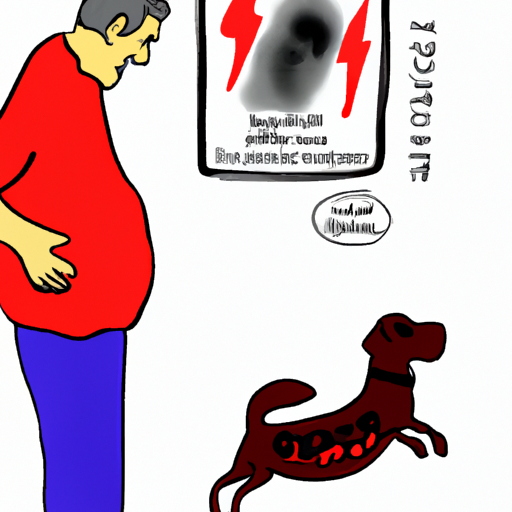As a caring pet owner, it’s crucial to be aware of the health issues that may affect your furry friend. One such health concern in dogs is pancreatitis. Recognizing the signs early can be the difference between a manageable condition and a life-threatening situation.
1. Understanding Pancreatitis in Dogs
Pancreatitis is an inflammation of the pancreas, an organ that plays a vital role in digestion and insulin regulation. This condition can strike dogs of all breeds and ages, but some are more susceptible than others. It can manifest in acute (sudden and severe) or chronic (long-term) forms, both of which can be potentially lethal if left untreated.
2. Key Symptoms of Pancreatitis
Your dog cannot tell you when something’s wrong, so it’s up to you to recognize the symptoms. Some of the most common signs include:
- Loss of appetite
- Vomiting or diarrhea
- Abdominal pain (your dog may arch its back, tuck in its belly, or show signs of discomfort when picked up)
- Fever
- Lethargy or depression
3. Risk Factors and Prevention
The exact cause of pancreatitis in dogs isn’t clearly understood, but certain factors can increase the risk:
- High-fat diet
- Obesity
- Certain medications or toxins
- Concurrent diseases like diabetes or hypothyroidism
Here are some measures you can take to reduce your dog’s risk:
- Maintain a balanced, low-fat diet
- Regular exercise to prevent obesity
- Regular vet check-ups to catch potential issues early
| Risk Factor | Prevention Method |
|---|---|
| High-fat diet | Balanced, low-fat diet |
| Obesity | Regular exercise |
| Medications or toxins | Avoid exposure, discuss with vet |
| Concurrent diseases | Regular vet check-ups |
4. Diagnosis and Treatment
If you notice any of the symptoms mentioned, it’s crucial to take your dog to the vet immediately. The vet might perform a physical examination, blood tests, ultrasound, or even a biopsy to confirm the diagnosis.
Treatment usually involves:
- Fasting to rest the pancreas
- Fluid therapy to prevent dehydration
- Pain relief
- Possibly hospitalization for severe cases
5. Living with a Dog with Pancreatitis
Living with a dog with pancreatitis requires dedication and patience. You’ll need to adhere strictly to the dietary guidelines provided by your vet and ensure your furry friend gets regular exercise. Regular vet visits are also essential to monitor your dog’s condition.
FAQ
Q: Can pancreatitis in dogs be cured?
A: Pancreatitis can be managed, but not cured. It’s crucial to prevent flare-ups by following your vet’s advice.
Q: Are certain breeds more susceptible to pancreatitis?
A: Yes, some breeds like Miniature Schnauzers and Cocker Spaniels are more prone to pancreatitis.
Q: Can my dog die from pancreatitis?
A: If left untreated, severe pancreatitis can indeed be fatal. Early detection and treatment are key.
Conclusion
As a conscientious dog owner, understanding the signs of pancreatitis can make a huge difference in your dog’s health and happiness. Always remember, when in doubt, consult your vet.



